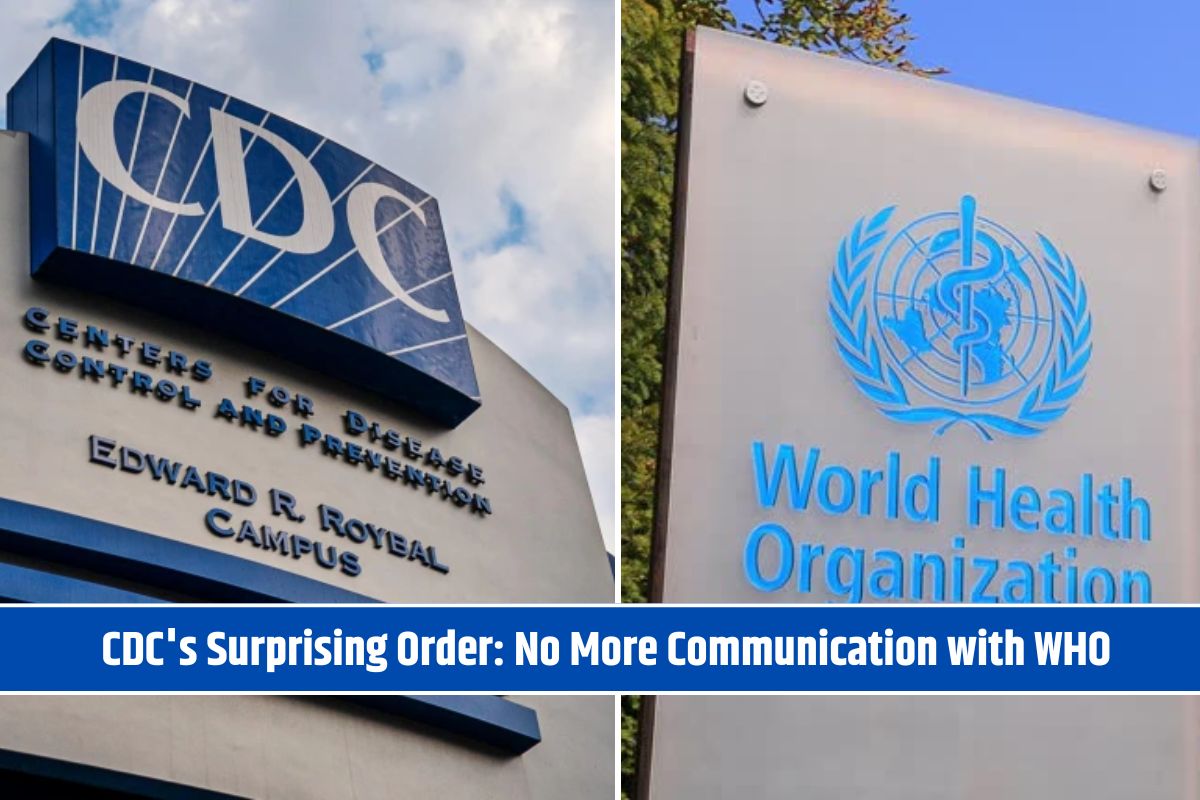The Trump administration has directed the Centers for Disease Control and Prevention (CDC) to cease all communications with the World Health Organization (WHO). This decision is part of President Trump’s executive order to begin the formal withdrawal of the U.S. from the WHO.
The move has raised significant concerns among health experts, who fear the decision could undermine global efforts to combat infectious diseases and weaken America’s role in international health collaboration.
Details of the Executive Order
The directive, issued by CDC Deputy Director for Global Health John Nkengasong, instructs CDC personnel assigned to the WHO to “recall and reassign” their work, halting their collaboration with the organization. CDC staff members working at WHO offices have also been told not to return to their posts until further notice.
This decision aligns with President Trump’s criticism of the WHO for its handling of the COVID-19 pandemic and claims that the U.S. contributes disproportionate funding compared to other nations, such as China. In January, Mr. Trump stated that the WHO had offered to reduce the U.S.’s financial commitment to match China’s contributions but demanded significant reforms before considering re-engagement.
Implications for Global Health
Loss of U.S. Expertise
The CDC plays a vital role in WHO operations. It is a “collaborating center” for global influenza research, providing critical data for vaccine development. The CDC’s Atlanta laboratory is a hub for analyzing samples from around the world to monitor and respond to emerging pandemic threats, such as bird flu and swine flu.
The U.S. has also contributed significantly to initiatives like the Global Polio Eradication Initiative and efforts to combat diseases such as Ebola and Marburg. Health officials worry that withdrawing U.S. expertise could disrupt these initiatives, leaving a gap that may take years to fill.
Impact on Influenza Vaccine Development
The timing of this decision raises concerns about influenza vaccine development. Next month, a key WHO committee is scheduled to meet to decide the strains for the upcoming winter flu vaccine.
The CDC’s contributions to this process are essential, as the agency provides data and guidance that help shape vaccine production for the Northern Hemisphere. Without U.S. input, vaccine manufacturers and regulatory bodies like the FDA may face challenges in ensuring the effectiveness of seasonal flu vaccines.
Broader Public Health Risks
Health experts argue that the withdrawal of U.S. support could hinder the global response to infectious disease outbreaks. The WHO often serves as the first line of defense in identifying and addressing emerging threats, especially in countries with limited public health infrastructure.
James LeDuc, a former CDC official, emphasized the importance of international collaboration, stating, “In today’s world of rapid travel, an outbreak anywhere is a threat everywhere.” The WHO’s ability to coordinate efforts, share information, and issue licenses for treatments and vaccines is critical for protecting global health.
Concerns About China’s Influence
The U.S. withdrawal from the WHO opens the door for other nations, particularly China, to fill the void left by American health officials. Former officials have expressed concerns that China may use its increased influence within the organization to advance its geopolitical interests.
Loyce Pace, former director of global affairs for the Department of Health and Human Services, emphasized the need for the U.S. to remain engaged in global health efforts, highlighting the importance of building partnerships to protect public health worldwide.
The Trump administration’s decision to sever ties between the CDC and WHO marks a significant shift in U.S. global health policy. While the move reflects criticism of the WHO’s handling of the COVID-19 pandemic, it has sparked concerns about the potential consequences for disease prevention and response efforts.
Without U.S. expertise, the WHO may struggle to maintain its effectiveness in combating global health threats. Meanwhile, the absence of collaboration could hinder America’s ability to respond quickly to outbreaks that pose risks to public health. As other nations step up to fill the gap, the long-term implications for U.S. leadership in global health remain uncertain.
